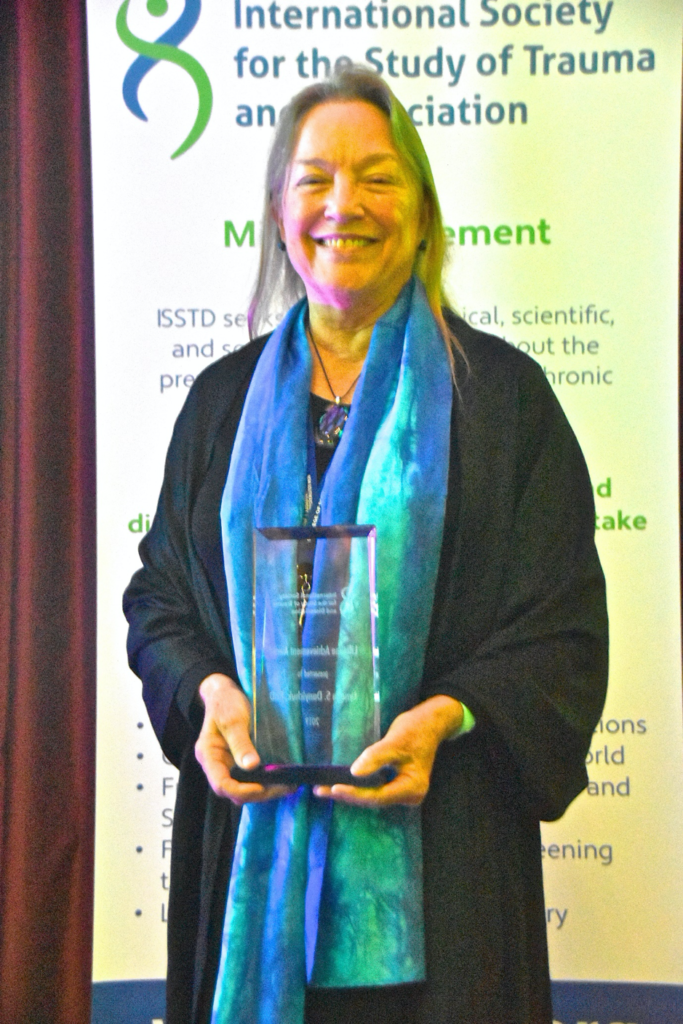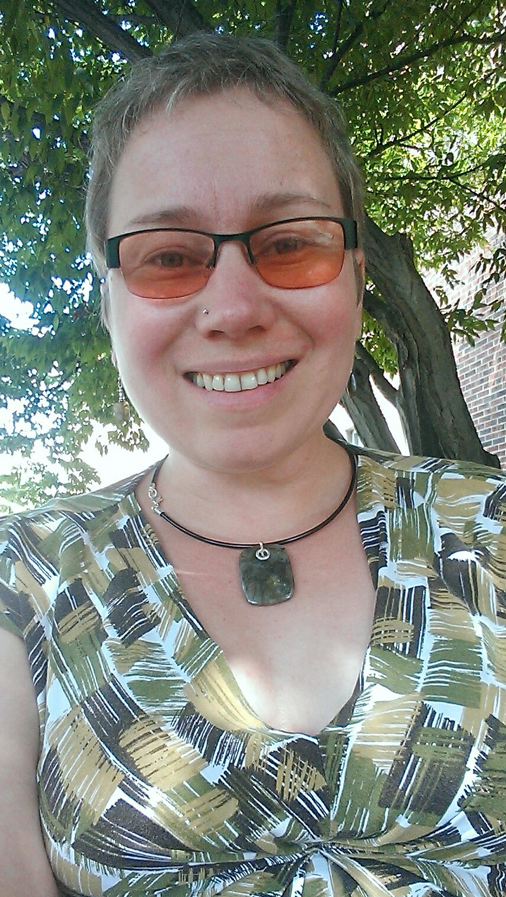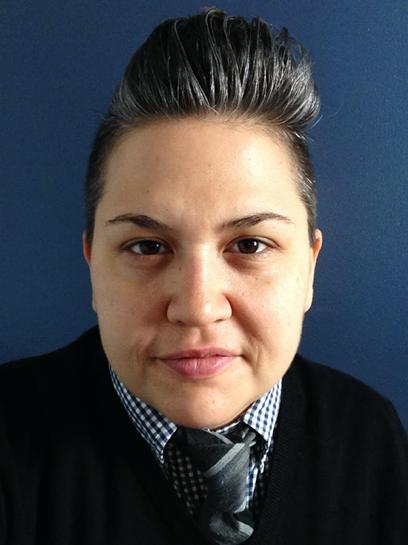Each year December 5 is International Volunteer Day, and the time when we take a moment to thank the volunteers who make ISSTD a thriving community. This year’s International Volunteer Day (IVD) theme ‘Volunteer for an Inclusive Future’, focuses on the role of volunteering as a way of engaging people to make meaningful contributions to more inclusive and egalitarian societies. Surely this theme is of great relevance to ISSTD, a group of professionals dedicated to serving a clientele who have been frequently excluded, not just from full participation in society, but also excluded from the mainstream mental health services.
It would not be possible to mention everyone who volunteers in some way for ISSTD. Volunteers include members who help at conferences, comment on draft policy documents, present conference papers, and those who assist with writing brochures and website material. It can even include our family members who pitch in at conferences and workshops by doing odd-jobs. By volunteers we also include our entire Board, our Presidents, all our Committee Chairs, SIG leadership, Taskforce leaders, as well as all our Committee Members. Without this daily help ISSTD simply would not function. Thank you!
To give an idea of the range of work done by volunteers we highlight a few significant activities.

Lynette Danylchuk
Special thanks to Lynette Danylchuk who stepped up into the role of Past President when Kevin Connors was unable to do the role. Lynette, a previous President, was no longer on the Board, but stepped into this volunteer role with little notice and did an admirable job on an Executive which steered us through considerable changes.
Warwick Middleton

An ISSTD member who seems to never sleep, Warwick has continued to provide many volunteer hours to ISSTD. He operates as the ‘unofficial photographer’ of ISSTD, carefully documenting our history at each annual conference and many other regional events as well. We are so fortunate to have his photos illustrate the vast majority of articles in ISSTD News, and many of his photos also grace the cover of our new Membership Brochure.
In addition, we must thank Warwick for his tireless efforts in documenting, recording and preserving our history. As the world’s oldest trauma-related professional society we have a unique and fascinating history and it is well worth preserving. Warwick has arranged for the scanning of over 30 years of ISSTD newsletters, ensuring the survival of a permanent digital archive. He has also undertaken an ambitious project interviewing leaders in our field, as well as others who have a fascinating take on the history of the trauma and dissociation field. Warwick’s interviews with Frank Putnam, Rick Kluft and Colin Ross (who was co-interviewed with Ken Benau) provide a valuable insight into our history and are available here. In 2020 we look forward to more interviews which are in the process of production, including interviews with journalist Nick Bryant (who exposed the Epstein child abuse racket), writer Jeffery Mason (author of The Assault on Truth) and retired psychologist and writer Alison Miller.
Diane Clare

In November this year ISSTD hosted a significant Australia-New Zealand Regional Conference in Christchurch, New Zealand. This conference, attended by over 300 people made, and will continue to make, an enormous impact in the region, reaching many people new to ISSTD and to the field of dissociative disorders.
Special thanks must go to Diane Clare, Chair of the Conference Committee for the enormous amount of work she put into organising and chairing the Committee, for almost two years, and attending carefully to every small detail, putting together a wonderful three day, multi-stream conference program, most ably assisted by the Committee and wonderful ISSTD headquarters staff! Diane particularly was dedicated to ensuring that all elements of bi-culturalism were embraced to ensure that Maori culture and tradition was appropriately included and respected. And, Wow! What a success that was, with traditional Maori ceremony being an integral part of proceedings, as well as something that was energetically and psychologically grounding as we explored all aspects of trauma, including much recent and distressing local community trauma.
Additional thanks goes to the volunteers of that Conference Committee for their work in getting the conference off the ground. This includes Hana Aranga, Amber Davies, Martin Dorahy (who also chaired the social sub-committee), Susie Farrelly (deceased), Joan Haliburn, Cathy Kezelman, Judy Lightstone, Mary-Anne Kate, Kate McMaugh, Warwick Middleton, Pam Stavropoulos, Michael Salter and Maggy Tai Rakena.
Our Newest SIG Chairs
ISSTD Special Interest Groups (SIGs) are open to all ISSTD Members who have specific interest in certain areas of the field. ISSTD SIGs have been developed by members for members, and are geared to provide ISSTD members with particular in-depth interest in certain areas related to trauma and dissociation. Special Interest Groups are a great attraction for members, but they must be developed and nurtured. Once again we have seen volunteers step up in 2019, with the creation of a group of new SIGs:

Katie Keech, Chair of the Transitional Age Youth (TAY)/Emerging Adult SIG
The TAY/ Emerging Adult SIG is a special interest group for members of ISSTD who are interested in the treatment of complex trauma in Transitional Age Youth (TAY), generally defined as clients between 18 to 24 years old.

Irina Diyankova, PhD, Chair of the Vicarious Trauma SIG
A new SIG for members with a professional interest in treating vicarious trauma, as well as members with a general interest in protecting themselves from vicarious trauma.

Lorna Myers, PhD: Chair of the Psychogenic Non-Epileptic Seizures (PNES) SIG
A new SIG to further dialogue, knowledge, research, and training on the etiology, evaluation, and effective treatment of trauma and dissociation in clients diagnosed with psychogenic non epileptic seizures (PNES), also known as dissociative seizures.
Lou Himes, PsyD: Chair of the Trauma and Transgender and Gender Non-Conforming (TGNC) Experience SIG

A new SIG to allow therapists working with trauma and the TGNE to connect and discuss ideas is just in the process of being formed.
For more information on these or other SIGs contact info@isst-d.org
These are but a few of the volunteers that make our professional society work, and thereby, indirectly help us do the work we do.
If, in reading this, you feel inspired to help out in ISSTD, complete a Member Engagement Form and the Member Engagement Committee will be in touch to match you with a role that suits.

